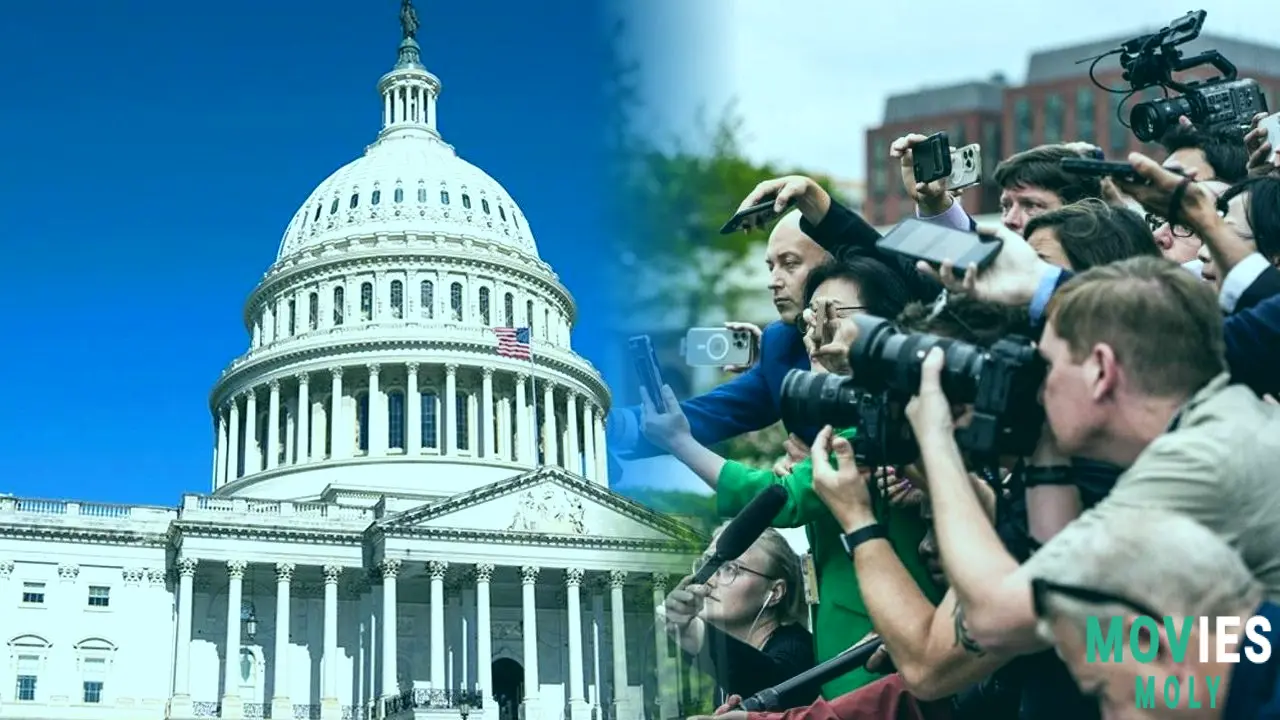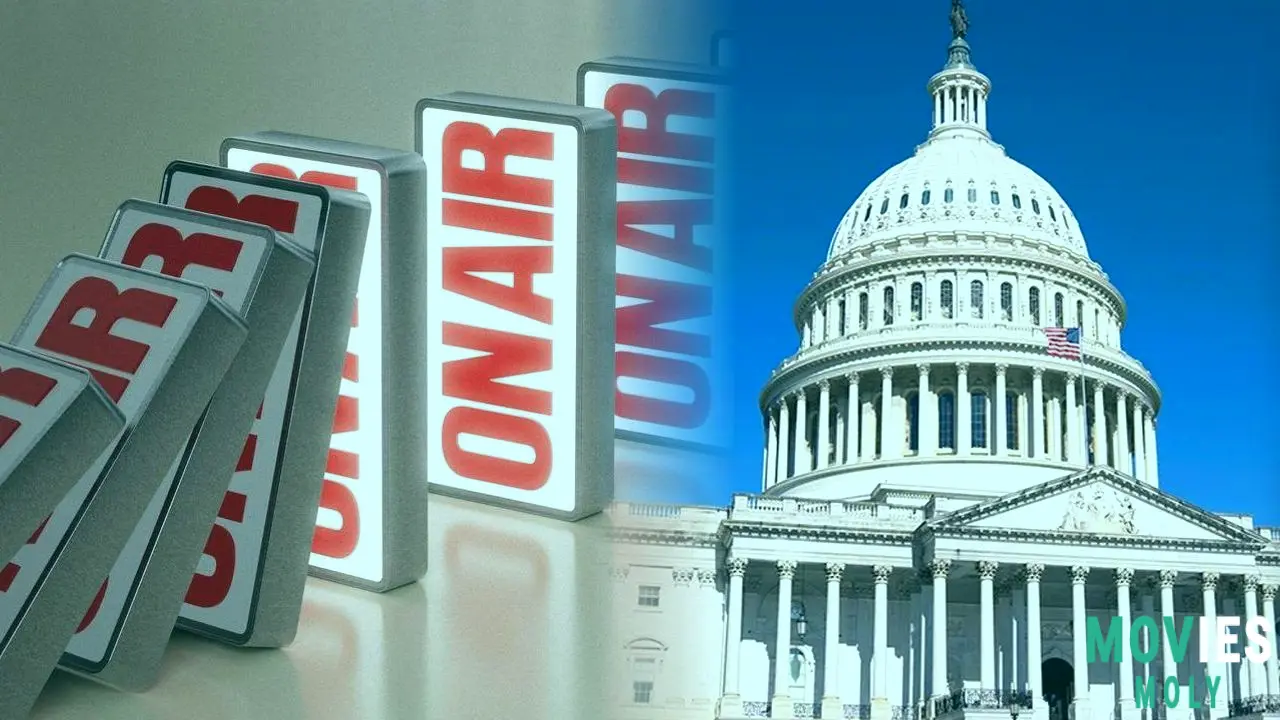The Corporation for Public Broadcasting (CPB), National Public Radio (NPR), and PBS are at a critical juncture. After President Donald Trump signed legislation rescinding $1 billion in funding, the nonprofit that supports over 1,500 public television and radio stations announced it will close by early next year. Many conservatives, who believe the mainstream media is biased against them, have long desired this change. However, this conduct occurs at a moment when their protests are hollow.
For decades, conservatives have claimed that news sources skew too far left. While that argument may have had some merit in the past, recent moves against public broadcasting go beyond eliminating bias. They indicate a new strategy that is both fruitless and contradictory to the fundamental ideas that conservatives claim to defend.
The Long Road to Conservative Media Complaints.The History of Perceived Exclusion
The conservative critique of the news media dates back decades, when three major television networks and daily newspapers dictated the national agenda. Figures like Walter Cronkite wielded enormous power over public opinion. Many conservatives believed that their opinions were not fully represented in coverage of significant events such as the cultural transformations of the 1960s, the Vietnam War, and the Civil Rights Movement. Events such as President Richard Nixon's establishment of the Environmental Protection Agency and affirmative action were not given the credit they deserved by a critical press. The perception was that news was filtered through a lens that saw the Republican Party with skepticism, if not outright hostility.
Reagan's Strategy for Direct Communication
The 1980s witnessed a transformation. Ronald Reagan eschewed traditional media and spoke directly to voters. He established a personal relationship with millions of people, including many Democrats, demonstrating the limitations of traditional journalism. This moment convinced conservatives that they could promote their own national vision. Radio pundits such as Rush Limbaugh developed large audiences by portraying themselves as a "lonely voice in the liberal wilderness," bridging a new conservative community. This sense of being embattled became an integral element of the conservative identity, a compelling concept that has persisted even as conservative news outlets have grown dramatically.
The irony of modern conservative media

An Empire Built and Still Complaining
Today, conservatives have a plethora of news sources. They can read The Wall Street Journal and the New York Post, as well as publications like as The Daily Wire, The Federalist, the Daily Caller, and Breitbart News. They can listen to local AM talk radio or locate conservative voices via satellite radio, podcasts, and online streaming. Fox News, Newsmax TV, and One America News Network provide television alternatives. There are many conservative influencers on social media networks.
Despite the broad and developing media environment, the Trump administration attempted to influence mainstream news. This includes leveraging government merger permits as leverage to advocate for an ombudsman at CBS to investigate prejudice. The president applauded the termination of Stephen Colbert's show and demanded greater space for conservative commentator Greg Gutfeld. He made it impossible for "60 Minutes" and The Associated Press to cover subjects he disliked. This demonstrates a desire to dominate the story rather than merely having a voice.
Public broadcasting: A Surprising Casualty.
The defunding of the Corporation for Public Broadcasting is a particularly noticeable step. Congress approved Trump's rescissions package along party lines, cutting $1.1 billion from NPR, PBS, and their member stations over the next two fiscal years. The Senate subsequently sponsored legislation to eliminate future financing, prompting CPB to declare its closure at the end of the year.
While NPR receives only around 1% of its funding from the federal government, PBS receives over 15% of its funding from taxpayers annually. Many member stations, particularly in rural areas, rely heavily on federal assistance. This causes a ripple effect, amplifying the cuts' influence on the entire system. According to a survey conducted by Public Media Company, 78 of 246 NPR member stations are in immediate danger of closing.
The decision to reduce financing is especially ironic given public broadcasting's history. For example, William F. Buckley's "Firing Line," which helped push conservative ideals into the mainstream, began on PBS. This history is frequently overlooked by those attempting to shut down public media.
Unintended Consequences of Defunding
Universal Access at Risk
According to NPR CEO Katherine Maher, the loss of federal funding is "devastating for many people, particularly in terms of the long-term impacts on universal access across the nation." Public media has long been a trusted institution, delivering education, emergency notifications, civil conversation, and cultural connections throughout the country. The CPB's closing means that the majority of its employees will be laid off by September 30, 2025, with only a tiny crew left to handle final duties.
The cuts threaten universal access to public media. NPR is providing $8 million in "fee relief" to the most underserved stations, but CPB also managed crucial infrastructure such as music rights management and distribution services. NPR is now talking with PBS to potentially take over these tasks.
The primary aim of public media was to offer equal access for all Americans. When something gets chipped away, it becomes difficult to see the bright side.
A conflict of values
The Republican move to defund public broadcasting appears to be self-defeating. Many of the damaged local radio and television stations are located in the rural areas they profess to serve. These stations provide important information about local concerns and natural disasters. Former Republican National Committee chairman Michael Steele declared that he "never believed there was a systemic conspiracy against Republicans" in the media.
While Republicans in Washington have accused public media of bias, the majority of Americans continue to favor federal financing for public radio. According to a Harris poll, 66% of Americans support it, with 58% of Republicans and 77% of Democrats saying it is a good value. This shows that the political activity is out of sync with larger public mood, including among its own voters.
The claim that the internet makes public media less necessary is also criticized. While most Americans have access to a wealth of information, the quality and nonpartisanship of public broadcasting remain critical. According to Katherine Maher of NPR, the organization supports "democracy, the Constitution, the role of the press, and every citizen's right to seek and receive information."
Our Take: A Short-Term Strategy
Conservatives have long complained about media bias. However, current moves to defund public television represent a substantial and disturbing shift. Rather than simply contesting apparent biases or developing alternative platforms, the current strategy entails aggressively deconstructing institutions that, while flawed, provide a broad public good.
This change is especially noteworthy given the enormous number of conservative media outlets available today. It implies a desire not only for fair representation, but also for the suppression of voices that do not completely line with a particular political goal. The impact on rural regions, where public radio is frequently the only source of local news and emergency information, is a direct blow to the people that some of these politicians claim to represent.
Ultimately, this judgment appears to be shortsighted. It violates the principle of open speech and undermines a system that has historically offered vital services, including assisting in the mainstreaming of conservative views. The defunding of public broadcasting is about more than just media bias; it is about control, and it demonstrates a readiness to hurt critical public services in order to achieve political aims.




